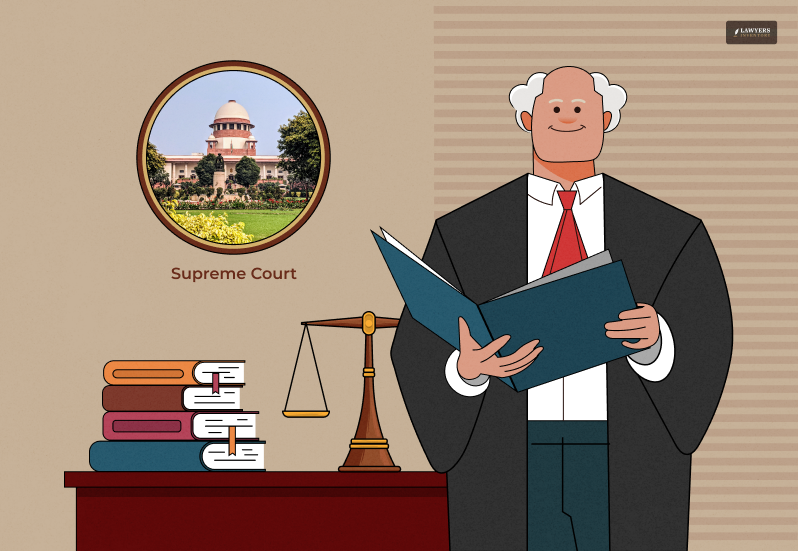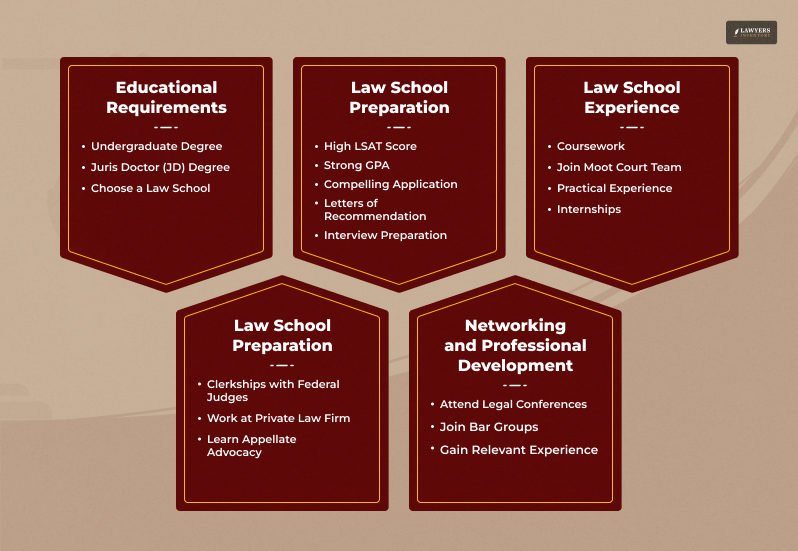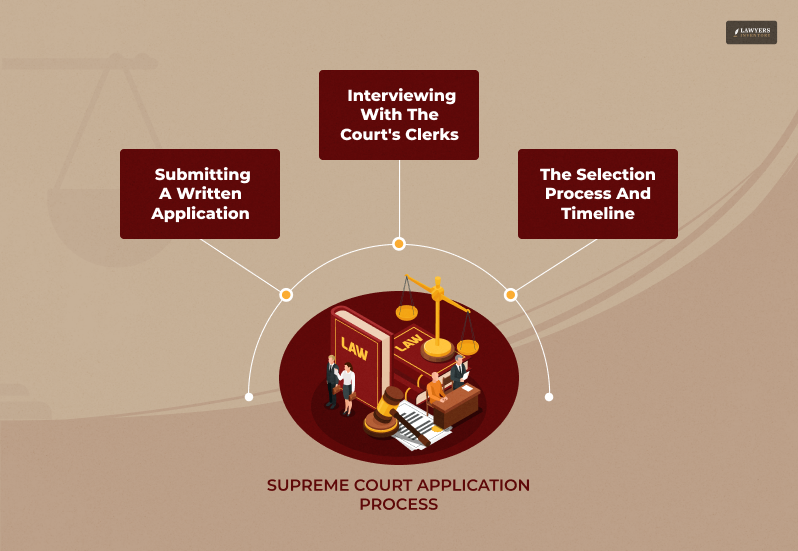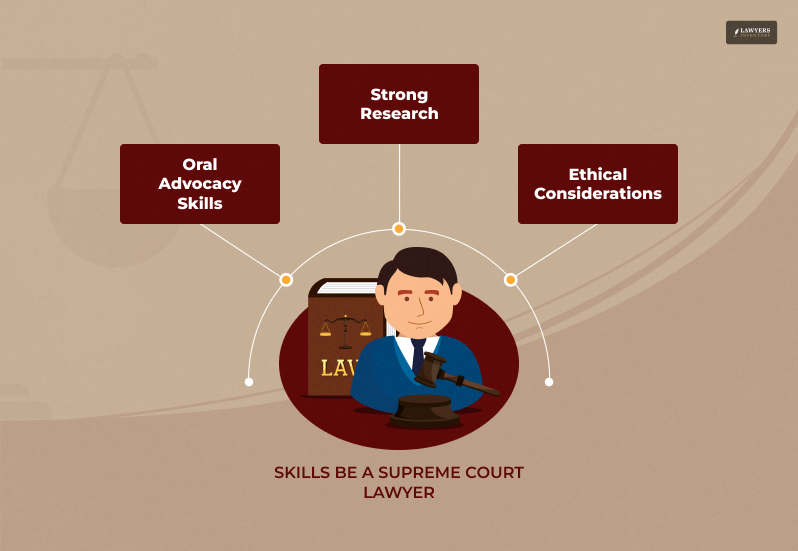
My friend Usha always wanted to know how to become Supreme Court lawyer. However, the problem with her family was they were not that well off. And don’t we all know that becoming a law student is something that does not go easy on the pockets?
Imagine standing in the grand halls of the Supreme Court, where only a select few have the privilege to argue cases that shape the nation’s laws.
However, did you know that less than 1% of lawyers ever get to practice in the Supreme Court? The journey is prestigious but challenging, often requiring years of dedication and significant financial investment.
While we all know how long it takes to become a lawyer, will tell you something that might shock you! In this blog, I will provide a comprehensive guide to becoming a Supreme Court lawyer in less time and with less money.
I will break down the essential steps, offer practical tips, and share insider advice to help you achieve this esteemed position more efficiently.
So, keep reading this blog until the end, and thank me later…
How to Become Supreme Court Lawyer?

Usha was the eldest daughter in her family and she worked two jobs. Her father was a retired military officer, so you can understand how difficult it was for her to imagine being a lawyer at the Supreme Court.
However, she learnt something that made her journey much easier than he would have thought!
Here are the steps that you need to take if you want to know how to become Supreme Court lawyer in less time and with less money:
Educational Requirements
Firstly, you need a solid educational foundation to become a Supreme Court lawyer. Start with an undergraduate degree, focusing on law-related subjects like political science, history, or economics. These subjects help you develop critical thinking and analytical skills, which are crucial for a legal career.
Next, you must earn a Juris Doctor (JD) degree from an accredited law school. This is a mandatory step for practicing law in the United States. Choose a law school with a strong curriculum and a good reputation.
Law School Preparation
Secondly, getting into a good law school requires preparation. Your LSAT (Law School Admission Test) score and undergraduate GPA are critical factors.
Aim for a high LSAT score by taking practice tests and possibly enrolling in an LSAT prep course. Additionally, a strong GPA in your undergraduate studies will also boost your chances.
When applying to law schools, make sure your application stands out. Write a compelling personal statement, get strong letters of recommendation, and prepare thoroughly for interviews.
Furthermore, highlight any relevant experiences, such as internships or volunteer work, demonstrating your legal commitment.
Law School Experience
Thirdly, once in law school, focus on coursework essential for Supreme Court practice. Constitutional law, appellate advocacy, and civil procedure are particularly important.
These courses will deepen your understanding of the legal principles and procedures you’ll argue cases at the highest level.
In addition to your coursework, get involved in extracurricular activities. Join the law review or moot court team, as these experiences are highly valued in the legal profession.
They provide practical experience in legal research, writing, and oral advocacy, crucial skills for a Supreme Court lawyer.
Moreover, participating in internships or clerkships during law school can also be incredibly beneficial. These positions offer hands-on experience and can help you build a network of professional contacts.
Working with judges or established lawyers will give you insights into the legal system and can open doors for future opportunities.
By focusing on these foundational steps, you can set yourself on the path to becoming a Supreme Court lawyer more efficiently and cost-effectively.
The right education, preparation, and experience will equip you with the skills and knowledge needed to succeed in this prestigious field.
Gaining Experience
To become a Supreme Court lawyer, gaining relevant experience is crucial. Start by securing clerkships with federal judges. These positions provide invaluable insights into the judicial process and help you understand how judges think and make decisions.
Working in public interest law or at a private law firm is also beneficial. Public interest law allows you to work on cases that impact society. In contrast, private law firms offer exposure to various legal issues and clients. Both paths help you build a strong legal foundation.
Appellate advocacy experience is particularly important. This involves working on cases that are being appealed to higher courts.
It helps you develop the skills to argue cases effectively before the Supreme Court. Look for opportunities to work on appellate cases through your firm or by volunteering for pro bono work.
Networking and Professional Development
Finally, building a network of legal professionals is essential for career growth. Start by forming relationships with your peers, professors, and mentors during law school. These connections can provide guidance, support, and opportunities throughout your career.
Attend legal conferences and seminars to stay updated on the latest field developments and meet other professionals. These events are great for learning and networking. Engage in discussions, ask questions, and exchange contact information with other attendees.
Additionally, joining legal associations and bar groups is another effective way to network and develop professionally.
These organizations offer resources, training, and networking opportunities. Furthermore, they also provide a platform to get involved in the legal community and stay informed about changes in the law.
By focusing on gaining relevant experience and actively participating in professional development, you can build a strong legal career that sets you on the path to becoming a Supreme Court lawyer.
These steps will help you acquire the skills, knowledge, and connections needed to succeed in this prestigious field.
Understanding the Supreme Court Application Process

The Supreme Court is the highest in the United States, with the power to make final decisions on important legal issues.
It has jurisdiction over cases involving the Constitution, federal laws, and state disputes. The Court hears cases with significant legal or public interest, often involving constitutional rights, federal regulations, or major public policies.
The decision-making process of the Supreme Court is thorough and deliberate. Justices review written briefs, hear oral arguments, and discuss the cases in private conferences before making decisions.
These decisions set precedents that lower courts must follow, shaping the interpretation of laws nationwide.
To become a Supreme Court lawyer, you must undergo a specific application process. Here are the key steps:
1. Submitting a Written Application
Firstly, start by submitting a written application to the Supreme Court. This application should include your resume, a cover letter, and other required documents. Highlight relevant experience, such as clerkships, appellate advocacy, and any notable cases you have worked on.
2. Interviewing with the Court’s Clerks
You will be invited to interview with the Court’s clerks if your application is shortlisted. These interviews are crucial as they assess your legal knowledge, analytical skills, and suitability for the role. Prepare thoroughly by reviewing your past cases, understanding the Court’s recent decisions, and practicing your interview skills.
3. The Selection Process and Timeline
The selection process is competitive and rigorous. After the interviews, the clerks will make recommendations to the Justices, who will make the final decision. The timeline for this process can vary, but it typically takes several months from submitting your application to the final decision.
Bonus: Essential Skills and Qualities to be a Supreme Court Lawyer

By developing these essential skills and qualities, you can position yourself for success as a Supreme Court lawyer.
For instance, you must improve your writing and oral advocacy and hone your research and analytical abilities. Additionally, you must always adhere to the highest ethical standards.
With dedication and hard work, you can achieve your goal of practicing before the highest court in the land, all while saving time and money on your journey.
Here are some of the skills that you need to develop if you want to know how to become Supreme Court lawyer:
Excellent Writing and Oral Advocacy Skills
To become a Supreme Court lawyer, you must excel in writing and oral advocacy. Clear and persuasive legal writing is crucial because much of your work will involve drafting briefs and legal documents.
These documents must be well-organized, concise, and compelling to communicate your arguments to the Justices effectively. Practice writing regularly, seek mentor feedback, and study exemplary legal writing to improve your skills.
Effective oral argument techniques are equally important. When presenting a case before the Supreme Court, you must be articulate, confident, and persuasive. This involves knowing your case inside out and thinking on your feet and responding to the Justices’ questions.
Additionally, participate in moot court competitions, watch recordings of Supreme Court arguments, and practice your public speaking skills to hone your oral advocacy.
Strong Research and Analytical Skills
Strong research and analytical skills are essential for identifying legal issues and conducting thorough research. As a Supreme Court lawyer, you must delve deep into legal precedents, statutes, and case law to build arguments.
This requires a keen eye for detail and the ability to sift through vast information to find relevant legal authorities.
Analyzing complex legal arguments and evidence is another critical skill. You must break down intricate legal issues, understand perspectives, and construct logical, well-supported arguments.
Practice analyzing case studies, engage in discussions with peers, and seek out challenging legal problems to develop these skills.
Ethical Considerations
Adherence to legal ethics rules is non-negotiable for any lawyer, especially those practicing before the Supreme Court. You must maintain the highest professionalism, integrity, and honesty standards in all your dealings. This includes being truthful in your representations, respecting client confidentiality, and avoiding conflicts of interest.
Maintaining professionalism also means treating everyone respectfully, from clients and colleagues to opposing counsel and court staff. Your reputation as an ethical and professional lawyer will significantly impact your career.
Furthermore, stay informed about the ethical rules governing your practice, seek guidance when in doubt, and always strive to uphold the principles of justice and fairness.
Chase Your Dreams
If Usha can, you can too! By understanding the Supreme Court’s role and navigating the application process effectively, you can increase your chances of becoming a Supreme Court lawyer.
This prestigious position requires dedication, preparation, and a deep understanding of the law. Still, you can achieve your goal quickly and with less financial burden with the right approach.
I hope that this blog has been of help to you if you are searching for how to become a lawyer at the Supreme Court. Please let me know if you have any other queries related to this. All you need to do is comment in the box below. And I will be there to answer all your questions!
Additional Reading:
- Paralegal vs Lawyer: How to Know Which One You Need
- Elder Law Attorney: Expert Guidance for Senior Legal Matters
- Why Trust Litigations Happen and How Hiring an Expert Trust Attorney Helps











0 Reply
No comments yet.